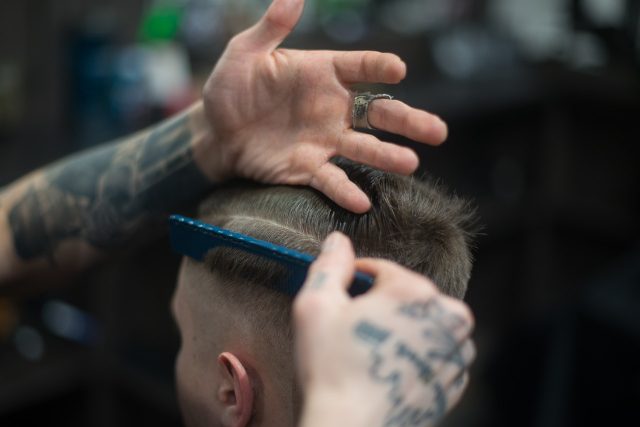
Confidence is an integral part of recovery. It not only influences your choices and decisions but also leaves you empowered. There are ways to boost your confidence while in recovery and they are crucial to your success.
But if you're like most people, you likely had self-confidence issues before you developed an addiction. Unhealthy decisions, guilt, shame, anxiety, and fear can wreak havoc on your self-esteem.
Luckily, there are a few things you can do to boost your confidence levels. For instance, you can get a nice haircut, get new clothes, take a new hobby, exercise, and so on. You can also try to honor your emotions, know your strengths, eat healthily, and be open to helping others.
Let's look at how addiction and low self-confidence relate and ways to boost your confidence after getting clean.
When you lack confidence, it becomes easy to get influenced by the world around you. For example, you may have a hard time overcoming negative thoughts. So you turn to outside activities or experiences to change those negative thoughts into positive ones.

It is crucial to believe in yourself during recovery from addiction. There are some simple ways to help you increase your self-confidence and help prevent a relapse.
Some people turn to drugs or alcohol to try to get rid of the negative state of mind or situation. According to one study, low confidence levels can lead to a lack of development and a tendency toward the consumption of alcohol and drugs.
In many cases, there isn’t necessarily a direct connection between addiction and low self-confidence. Other factors like behavioral or mental disorders and family history also play a role in drug abuse.
But addiction affects confidence because it is an unusually dehumanizing condition by itself. A person with low-confidence levels acts and think in ways linked to not feeling as though they’re a good and worthy individual.
You may not know this, but something as simple as getting a new hairstyle can boost your confidence levels. An excellent style will put you in a fantastic mood.
How you may ask.
Haircuts make you look and feel better about yourself. You get compliments and enjoy catching your reflection in the mirror. Loving what you see in the mirror is critical in recovery.
Besides, going to the salon means getting pampered. A massage or wash go along way - but having your hair stroked along is enough to release the feel-good hormones.

Sometimes looking good can help you feel good too. Take pride in even the smallest accomplishments. This will help you celebrate even the smallest of victories all the time.
Self-care is usually the last thing on the minds of those with substance abuse disorders. Their top priority is to get drugs and alcohol.
Now that you are clean, you may take advantage of this time to get some nice looking clothes. Tag a friend or loved one along, and let them help you find something that looks good on you.
When you look and feel good about yourself, you'll be more willing to go out of your comfort zone. You'll also be open to meet new people and try new things.
Several studies have shown that dressing well boosts your performance and improves others' impression of you. It can also change the way you interact with others.
Negative self-talk can lower your confidence levels. So, you may want to replace any negative thoughts with positive ones. Being thankful for what you have is a good start to thinking positive.
Positive thoughts attract good things to you. And when good things come your way, you'll feel more confident. Your recovery is a huge step. Let nothing or no one tell you otherwise.
When you shift your perspective to a more positive one, your outlook on life will change. You'll love more, hate less, demand less, and so on. Over time, your new way of thinking will help you prevent relapse and build meaningful relationships.
Positive self-talk is one of the easiest things you can do to feel more confident. After all, it’s all about telling yourself good things - like "I'm beautiful," "I'm enough," "I'm worthy." Keep doing that every time, and you'll see the difference.

Healing your physical body with rigorous exercise also has an impact on your mental health. The more consistent, the better!
You may know this, but we'll repeat it. Exercise and healthy eating are great for your body. Most treatment programs teach different types of workouts that you can still do. But it's a good idea to explore your options to see if you'll love others more.
You can try out yoga, swimming, running, walking, tai chi, team sports, and group classes.
Exercise offers the following benefits:
Your physical and mental health are connected. The more you care for yourself, the better you'll feel about yourself. You’ll also gain more confidence.
You don't have to make significant life changes to rebuild your confidence. You've been through enough change anyway.
You can keep a gratitude journal, for instance. After all, there’s plenty to be happy for: a sober life, a bright future, supporting family, new hobbies and so on.
Cleaning your room and tidying up space can also work great. Although they may seem like a bummer, these activities can boost your mood. A clean space will make you feel much better than a dirty one. Psychologists say that the state of your surroundings can affect your mental state.
Other self-care practices that are worth trying out include:
Once you're clean, you may find it hard to feel good or happy all the time. This is because alcohol and drugs often fill a social void. Finding new hobbies can be a great way to fill your time, interests, and energy.
Addiction treatment is not enough to maintain mental health over the long term. You need hobbies -- especially social hobbies -- to get a healthy amount of serotonin and dopamine. This way, you won't have to think about the pleasures of substances.

Finding a productive hobby will help you boost your confidence while in recovery from addiction.
Hobbies are healthier alternatives to drugs and will help you feel included in society. Examples of good hobbies include public speaking, playing music, team sports, fitness, cooking, and gardening. These activities:
Alcoholics Anonymous and Narcotics Anonymous are great groups to be part of because they allow you to meet with others who’ve been in the same position as you. They also provide a platform where you can express yourself without fear of judgment. Being in the company of peers can help elevate your confidence and keep you motivated towards achieving your goals.
Family therapy can also be a great way to repair any strains or damage brought about by addiction. Although treatment facilities often provide such therapies, you may still want to explore options if there’s an underlying problem.